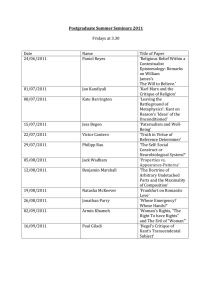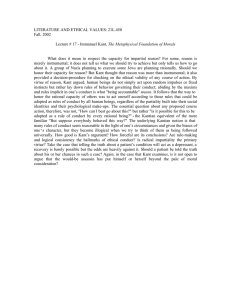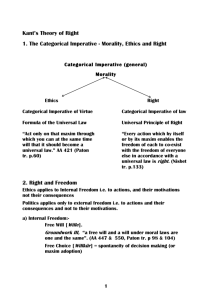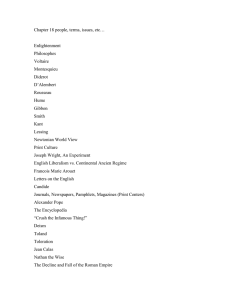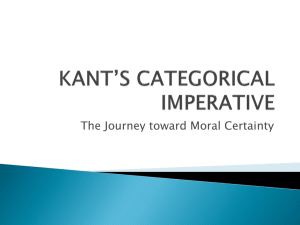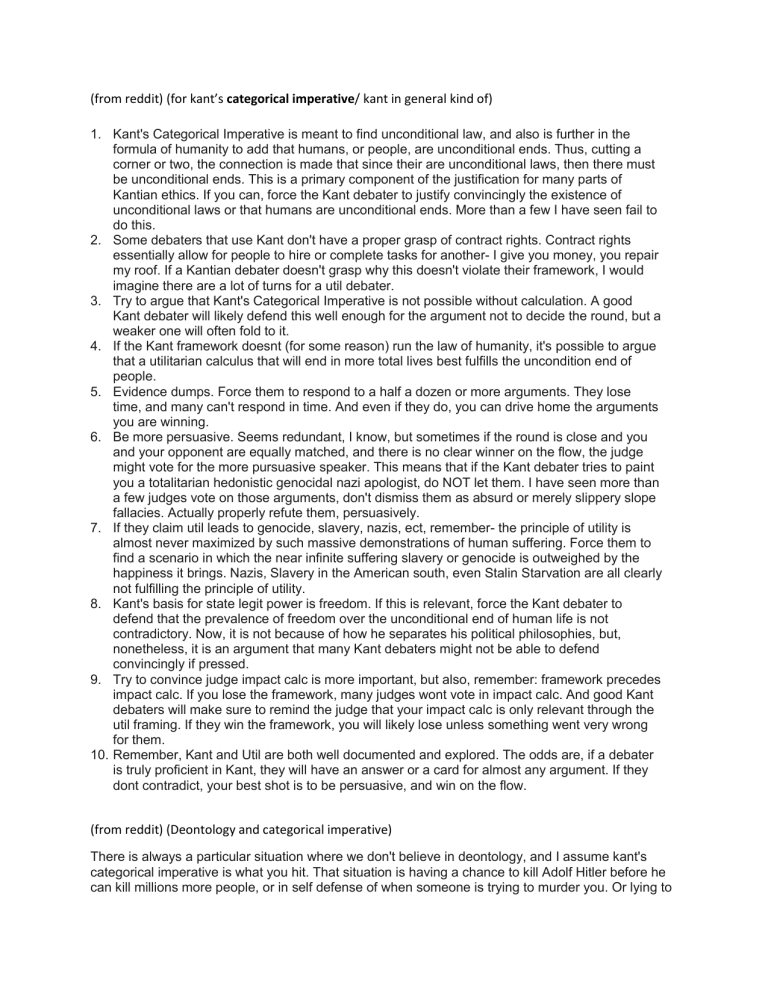
(from reddit) (for kant’s categorical imperative/ kant in general kind of) 1. Kant's Categorical Imperative is meant to find unconditional law, and also is further in the formula of humanity to add that humans, or people, are unconditional ends. Thus, cutting a corner or two, the connection is made that since their are unconditional laws, then there must be unconditional ends. This is a primary component of the justification for many parts of Kantian ethics. If you can, force the Kant debater to justify convincingly the existence of unconditional laws or that humans are unconditional ends. More than a few I have seen fail to do this. 2. Some debaters that use Kant don't have a proper grasp of contract rights. Contract rights essentially allow for people to hire or complete tasks for another- I give you money, you repair my roof. If a Kantian debater doesn't grasp why this doesn't violate their framework, I would imagine there are a lot of turns for a util debater. 3. Try to argue that Kant's Categorical Imperative is not possible without calculation. A good Kant debater will likely defend this well enough for the argument not to decide the round, but a weaker one will often fold to it. 4. If the Kant framework doesnt (for some reason) run the law of humanity, it's possible to argue that a utilitarian calculus that will end in more total lives best fulfills the uncondition end of people. 5. Evidence dumps. Force them to respond to a half a dozen or more arguments. They lose time, and many can't respond in time. And even if they do, you can drive home the arguments you are winning. 6. Be more persuasive. Seems redundant, I know, but sometimes if the round is close and you and your opponent are equally matched, and there is no clear winner on the flow, the judge might vote for the more pursuasive speaker. This means that if the Kant debater tries to paint you a totalitarian hedonistic genocidal nazi apologist, do NOT let them. I have seen more than a few judges vote on those arguments, don't dismiss them as absurd or merely slippery slope fallacies. Actually properly refute them, persuasively. 7. If they claim util leads to genocide, slavery, nazis, ect, remember- the principle of utility is almost never maximized by such massive demonstrations of human suffering. Force them to find a scenario in which the near infinite suffering slavery or genocide is outweighed by the happiness it brings. Nazis, Slavery in the American south, even Stalin Starvation are all clearly not fulfilling the principle of utility. 8. Kant's basis for state legit power is freedom. If this is relevant, force the Kant debater to defend that the prevalence of freedom over the unconditional end of human life is not contradictory. Now, it is not because of how he separates his political philosophies, but, nonetheless, it is an argument that many Kant debaters might not be able to defend convincingly if pressed. 9. Try to convince judge impact calc is more important, but also, remember: framework precedes impact calc. If you lose the framework, many judges wont vote in impact calc. And good Kant debaters will make sure to remind the judge that your impact calc is only relevant through the util framing. If they win the framework, you will likely lose unless something went very wrong for them. 10. Remember, Kant and Util are both well documented and explored. The odds are, if a debater is truly proficient in Kant, they will have an answer or a card for almost any argument. If they dont contradict, your best shot is to be persuasive, and win on the flow. (from reddit) (Deontology and categorical imperative) There is always a particular situation where we don't believe in deontology, and I assume kant's categorical imperative is what you hit. That situation is having a chance to kill Adolf Hitler before he can kill millions more people, or in self defense of when someone is trying to murder you. Or lying to a serial killer to say your family isnt home because he wants to murder them. So tell the judge context matters in every scenario and the categorical imperative fails to look at context. One thing I want to tell anyone reading this, however, is that I have read both works and compared them and they aren't that different at the end of the day. Other than universal law saying to compare it to every person doing that same action, the categorical imperative and mill's util are quite similar. As the end process of kant's work still weighs universal laws by asking cost ben, if the world would be a better place if this was a universal then it is moral. At least most people see it that way anyway.

